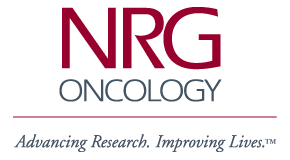

NSABP Members' Area
Password Protected - Access
Limited to NSABP Participating
Institutions Only
NSABP Foundation, Inc.
General NSABP Information
Financial Conflicts of
Interest Policy
Contact the NSABP
Employment

Clinical Trials Information
Clinical Trials Overview
Protocol Chart
Never Say Lost
Treatment Trials Information
Protocol B-51
Protocol B-52
Protocol B-53/S1207
Protocol B-55/BIG 6-13
Prevention Trials Information
Protocol P-1 - BCPT
Protocol P-2 - STAR
To report problems, ask
questions or make comments,
please send e-mail to:
Webmaster@nsabp.pitt.edu
Postoperative Adjuvant Chemotherapy or BCG for Colon Cancer: Results From NSABP Protocol C-01
Wolmark N, Fisher B, Rockette H, Redmond C, Wickerham DL, Fisher ER, Jones J, Glass A, Lerner H, Lawrence W, Prager D, Wexler M, Evans J, Cruz A, Dimitrov N, and Jochimsen P
Journal of the National Cancer Institute 80:30-36, 1988
Abstract
Data are presented from 1,166 patients with Dukes B and C carcinoma of the colon who were entered into the National Surgical Adjuvant Breast and Bowel Project (NSABP) Protocol C-01 between November 1977 and February 1983. Patients were randomized to one of three therapeutic categories: 1) no further treatment following curative resection (394 patients); 2) postoperative chemotherapy consisting of 5-fluorouracil, semustine, and vincristine (379 patients); or 3) postoperative BCG (393 patients). The average time on study was 77.3 months. A comparison between patients receiving postoperative adjuvant chemotherapy and those treated with surgery alone indicated that there was an overall improvement in disease-free survival (P = .02) and survival (P = .05) in favor of the chemotherapy-treated group. At 5 years of follow-up, patients treated with surgery alone were at 1.29 times the risk of developing a treatment failure and at 1.31 times the likelihood of dying as were similar patients treated with combination adjuvant chemotherapy. Comparison of the BCG-treated group with the group treated with surgery alone indicated that there was no statistically significant difference in disease-free survival (P = .09). There was, however, a survival advantage in favor of the BCG-treated group (P = .03). At 5 years of follow-up, patients randomized to the surgery-alone arm were at 1.28 times the risk of dying as were similar patients treated with BCG. Further investigation disclosed that this survival advantage in favor of BCG was a result of a diminution in deaths that were non-cancer related. When analyses were conducted on which events not related to cancer recurrence were eliminated, the survival difference between the BCG and control groups became nonsignificant (P = .40); the cumulative odds at 5 years decreased from 1.28 to 1.10. The findings from this study are the first from a randomized prospective clinical trial to demonstrate that a significant disease-free survival and survival benefit can be achieved with postoperative adjuvant chemotherapy in patients with Dukes B and C carcinoma of the colon who have undergone curative resection.
National Surgical Adjuvant Breast and Bowel Project, Pittsburgh, PA.